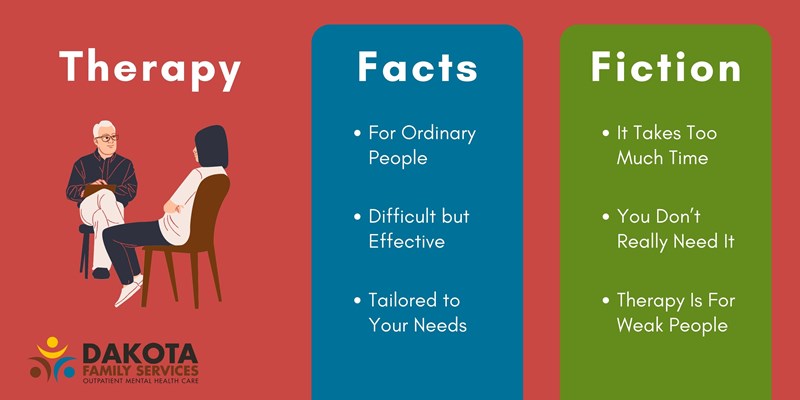Opening the Keys of Mental Health And Wellness: An Overview of Counseling and Therapy Choices
Psychological wellness is a facility and important aspect of overall health. Various therapy and treatment options exist to deal with numerous psychological challenges. Each method supplies special advantages and approaches customized to specific needs. Comprehending these alternatives is vital for anyone looking for to boost their psychological wellness. Marriage Counselling. What elements should one consider when exploring these methods? The solution might reveal a path to a much healthier emotion
Recognizing Mental Health and Its Relevance
Mental health encompasses the emotional, psychological, and social well-being of people, considerably affecting how they believe, feel, and act. Its significance can not be overstated, as it influences every element of life, including partnerships, work efficiency, and total top quality of life. People with good psychological wellness often tend to deal with tension better, maintain much healthier partnerships, and make notified decisions. Alternatively, bad mental health and wellness can lead to psychological distress, damaged functioning, and different psychological disorders, which might require specialist treatment. Understanding psychological health and wellness is important for identifying the indications of distress and the demand for assistance. Recognition additionally advertises empathy and reduces stigma, motivating people to look for aid when needed. By prioritizing psychological health and wellness, communities can promote environments that sustain psychological health, eventually resulting in much healthier, extra durable individuals. This structure offers as a vital action toward effective psychological wellness therapy and therapy alternatives.
Sorts Of Counseling Techniques
Counseling approaches vary widely, each customized to satisfy the distinct demands of individuals seeking assistance. Amongst the most typical types are cognitive-behavioral therapy (CBT), which focuses on identifying and transforming unfavorable thought patterns, and person-centered therapy, which emphasizes compassion and approval. Psychodynamic treatment checks out past experiences and unconscious procedures to recognize current actions, while solution-focused brief treatment aims to determine services instead of check out problems.Additionally, household therapy addresses relational characteristics and interaction within families, fostering healthier communications. Team counseling gives a communal room for individuals to share experiences and support one an additional. Various other methods include existential treatment, which urges people to discover significance and objective, and art or songs therapy, which makes use of creative expression as a healing tool. Each approach offers distinct techniques and philosophies, permitting clients to discover the most suitable approach for their individual growth and recovery trips.
Exploring Various Therapy Modalities
In the domain name of psychological health counseling, different therapy modalities supply distinctive techniques to treatment. Cognitive Behavior modification highlights the connection in between thoughts and behaviors, while Psychodynamic Therapy explores unconscious impacts on emotional health. Furthermore, Mindfulness-Based Methods advertise present-moment understanding as a way to boost psychological policy and total psychological health and wellness.
Cognitive Behavior Therapy
Cognitive Behavior Modification (CBT) attracts attention as one of the most widely practiced and investigated techniques in psychological health therapy. This method focuses on the interconnection in between habits, thoughts, and sensations, highlighting that modifying adverse thought patterns can lead to enhanced psychological health and behavioral changes. CBT is structured, normally including a restricted variety of sessions, and aims to gear up individuals with useful skills to manage their signs. It is reliable for a variety of problems, consisting of stress and anxiety conditions, depression, and post-traumatic stress problem. By using strategies such as cognitive restructuring and exposure therapy, CBT fosters durability and encourages clients to confront difficulties head-on, making it a valuable alternative in the landscape of psychological wellness therapies.
Psychodynamic Therapy Techniques
Psychodynamic therapy approaches provide a deep expedition of the unconscious mind and its influence on behavior and psychological wellness. Rooted in Freudian theory, these approaches emphasize the value of early childhood years experiences and unconscious disputes. With methods such as free association, desire analysis, and transference, individuals acquire insight into their feelings and ideas, promoting self-awareness and understanding. This restorative modality motivates customers to discover quelched emotions and unsettled concerns, which can be crucial in attending to existing mental obstacles. By checking out the interaction in between previous experiences and existing actions, psychodynamic treatment intends to advertise emotional healing and personal development. Eventually, it provides a framework for individuals to explore complex inner dynamics that affect their mental health.

Mindfulness-Based Techniques
While conventional therapies frequently focus on previous experiences, mindfulness-based strategies focus on present-moment awareness as a pathway to emotional well-being. These techniques, consisting of mindfulness-based cognitive treatment (MBCT) and mindfulness-based stress decrease (MBSR), motivate people to involve completely with their thoughts and feelings without judgment. Experts discover to observe their psychological states, promoting a greater understanding of emotional triggers and responses. This method not only reduces signs and symptoms of stress and anxiety and anxiety yet additionally improves general psychological resilience. By integrating mindfulness exercises, such as meditation and deep breathing, clients grow a sense of tranquility and clarity. Ultimately, mindfulness-based methods equip individuals to browse life's obstacles with boosted awareness and acceptance, promoting a much healthier connection with their thoughts and feelings.
The Role of a Therapist or Counselor
A knowledgeable specialist or therapist plays an important function in supporting people via their mental wellness journeys. They supply a risk-free, non-judgmental space where clients can reveal their sensations and ideas honestly. Couples Therapy. By using different healing techniques customized per individual's needs, specialists assist clients check out underlying problems that may add to their psychological health and wellness challenges.Therapists supply assistance and tools to manage anxiety, stress and anxiety, clinical depression, and various other psychological difficulties. Their training equips them to identify patterns in behavior and assumed procedures, helping with understandings that result in personal growth. They also promote a strong therapeutic alliance, which is important for effective outcomes.Moreover, therapists stay fully commited to confidentiality and honest requirements, making certain a trusting environment. Inevitably, the duty of a specialist or therapist is to equip people, encouraging them to establish durability and much healthier coping techniques while steering via life's intricacies
Exactly how to Choose the Right Therapy or Therapy Option
Selecting the ideal counseling or treatment option begins with assessing private demands. It is necessary to recognize personal obstacles and goals before discovering different treatment designs. This fundamental step can significantly influence the effectiveness of the chosen approach.
Analyze Your Needs

Just how can people properly analyze their psychological health needs when examining therapy or treatment choices? They must reflect on their emotional state and identify particular problems, such as anxiousness, depression, or relationship challenges. Journaling can be a beneficial tool for tracking thoughts and sensations in time. In addition, individuals might benefit from seeking comments from relied on good friends or relative regarding viewed changes in actions or state of mind. It is additionally practical to assess personal objectives for treatment, such as improving coping abilities or gaining understanding right into individual patterns. Looking into numerous counseling modalities and their suitability for particular needs can assist in making an enlightened choice. Ultimately, self-awareness plays an essential function in choosing the appropriate path for mental wellness support.
Check Out Treatment Styles
While going across the diverse landscape of treatment options, people need to take into consideration different styles of counseling to discover the most effective suitable for their distinct demands. Cognitive Behavior Modification (CBT) concentrates on altering negative thought patterns, while Psychodynamic Therapy discovers site link unconscious processes and previous experiences. Humanistic approaches stress personal growth and self-actualization, fostering a helpful atmosphere. Additionally, mindfulness-based treatments cultivate present-moment recognition, helping emotional regulation. For those seeking structure, Solution-Focused Brief Treatment targets particular objectives and options. Team therapy supplies a common setup for shared experiences and support. Ultimately, individuals should certainly review their preferences, convenience degrees, and details obstacles, guaranteeing they select a restorative design that reverberates with their personal trip toward mental well-being.
Getting Rid Of Obstacles to Seeking Aid

The Benefits of Therapy and Treatment for Psychological Wellness
Seeking help for mental health and wellness difficulties can bring about significant improvements in overall health. Counseling and treatment offer individuals with a risk-free room to discover their feelings and ideas, promoting self-awareness and individual development. These specialist solutions outfit clients with coping techniques and problem-solving skills tailored to their unique situations.Moreover, treatment can reduce symptoms of stress and anxiety, clinical depression, and other psychological health and wellness conditions, improving emotional resilience. Regular sessions promote accountability and motivate individuals to establish and accomplish individual objectives. Through numerous restorative methods, such as cognitive-behavioral treatment or mindfulness practices, customers find out to reframe adverse thoughts and develop much healthier behaviors.Additionally, the healing connection itself can be a source of support, helping to combat isolation and isolation. In general, engaging in therapy and therapy is a proactive action toward achieving mental health, making it possible for people to lead more fulfilling lives.
Regularly Asked Questions
How Much Time Does Counseling or Treatment Typically Last?
The period of counseling or treatment differs substantially, typically lasting from a couple of sessions to numerous months or years. Factors affecting this include the person's details needs, the kind of treatment, and restorative goals.
What Should I Expect Throughout My Very First Session?
During the first session, see here now people can expect an intro, conversation of worries, and the therapist's approach. They might complete analyses and develop goals, fostering a secure atmosphere for open interaction and building connection.

Are There Any Type Of Risks Connected With Therapy?
Treatment can involve risks, such as emotional pain, susceptability, or challenging uncomfortable memories. While these difficulties might emerge, they can also cause personal development and recovery, making the restorative procedure complicated yet potentially rewarding.
How Can I Inform if My Therapist Is an Excellent Fit?
Determining if a specialist is a great fit includes evaluating convenience, communication design, and healing method. Positive connection and progress in the direction of goals are indications of an appropriate match, vital for reliable mental wellness support.
Will My Insurance Coverage Cover Counseling or Therapy Procedure?
Figuring out insurance policy coverage for counseling or treatment sessions commonly needs calling the insurance supplier straight. Policies differ substantially, so individuals should verify advantages, co-pays, and any type of required pre-approvals prior to going after therapy services. Among the most usual types are cognitive-behavioral treatment (CBT), which focuses on recognizing and altering negative thought patterns, and person-centered treatment, which highlights compassion and acceptance. Psychodynamic treatment discovers unconscious processes and past experiences to recognize present behavior, while solution-focused short treatment aims to identify options instead than investigate problems.Additionally, household therapy addresses relational characteristics and interaction within households, cultivating much healthier communications. Various other strategies consist of existential therapy, which encourages individuals to find meaning and function, and art or music therapy, which uses innovative expression as a healing tool. Cognitive Behavioral Therapy highlights the connection between behaviors and thoughts, while Psychodynamic Therapy discovers subconscious impacts on emotional wellness. Cognitive Behavior Treatment (CBT) focuses on altering negative thought patterns, while Psychodynamic Therapy discovers subconscious processes and past experiences.